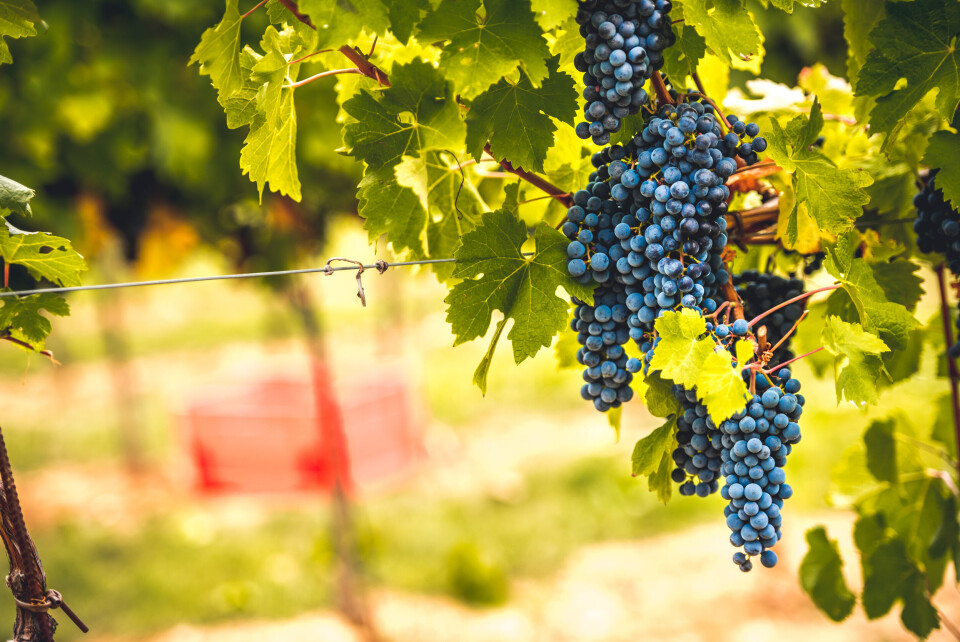-
‘Reckless’: French winemakers react to Trump’s new threat of 200% tariffs
The US president made the comment after hearing that President Macron did not intend to join his Board of Peace initiative
-
How to order wine in a French restaurant
Our columnist looks at how to ensure a stress-free dining experience by understanding wine lists and navigating sommelier advice
-
Duck Cold! Four French phrases to use when it is freezing outside
We remind you of French expressions to use to describe the drop in temperature
Grape harvest begins earlier than ever in south France due to heat
One producer says he always begin harvesting early, partly because of the location of his plot, but that climate change is also having an impact

A domaine producing Fitou appellation wine has started its grape harvest (vendange) on Monday, July 25 – a couple of days earlier than ever before.
The hand-harvested muscat à petits grains vines of the domaine Champ des Soeurs (Aude) are in a hectare-and-a-half parcel close to the sea, which means they are among the first to send out new shoots every spring.
“There are three reasons why we are so early,” Laurent Maynadier, who runs the domaine with his wife Marie, told The Connexion.
“The first is that muscat à petits grains vines are very early to begin with, and these are right by the sea. Secondly, this year the climate has been very hot and dry, and thirdly it is down to the style of wine we make from these grapes, which we want to be very light and fruity.”
It is not the first time the domaine, established in the seventeenth century, has started its harvest of the parcel in July – it also did so in 2017 and in 2020 – but it has never been so early.
“Climate change is visible here to everyone,” said Mr Maynadier. “I am sure that in two or three years we will again have a very early start to our vendange.”
Yield this year is low, at around 7,000 bottles a hectare, compared to 9,000 in a usual year, but he is confident that the quality will be good.
“Of course it is too early to be sure, but my intuition is that we will have a wine with citrus and lychee notes, the classic notes you find with a well made muscat à petits grains.”
Champ des Soeurs muscat sells for €6 as it leaves the farm gate.
Diversifying production
The problems winemakers have had over the last decade, including hot spells, drought and falling wine consumption in France along with punitive export taxes, have led the Meynadiers to start growing aloe vera cactus as well.
The cacti now cover five hectares where the old and poorly performing vines of the 17-hectare domain have been grubbed up.
Some more fields have also been bought for aloe vera production.
The Meynadiers are part of a pilot project with the region, the Chambre d’Agriculture and the Agence de l’Eau to develop techniques to grow the cactus, which is sought after by the cosmetics industry for its cooling and skin healing properties.
“It is not an easy transition, the aloe vera requires a lot of regular winter water, which means we have to build reservoirs for it to ensure it gets what it needs.
“It also needs to have electricity in the fields so that pumps for drip irrigation can work, and we have to work out the best way to harvest by hand and process it,” Mr Meynadier said.
“But there is a strong and growing market, so it is up to us to sort out the technical problems to make sure we can grow it as a profitable crop, adapted to this area, which is becoming more and more difficult for grapes.”
Related articles
Sugar, yeast, ice, mould - what makes French sweet wine…sweet?
MAP: A tour of France by local cheeses - how many have you tried?
Wine tasting basics: describing the smell, the flavour and the texture
























